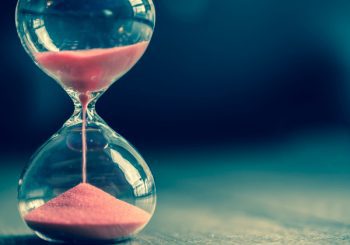By Nikki Harper
Staff Writer for Wake Up World
For most of us, it was back in mid March that the world really started to feel and look different. Between mid and late March, most countries around the world imposed some kind of lockdown or covid-19 restrictions, and we collectively struggled to get used to our new normal. Just over two months later, a ‘new new normal’ is gradually starting to emerge, as restrictions are gradually lifted, schools and shops re-open and life starts to look a little more familiar, although different. It’s worth remembering, however, that each of us experienced our own, unique, original new normal, depending on our circumstances, our family life, whether or not we were still working, and so on – and new normal 2.0 is going to be different for each of us too. It’s going to be stressful. We’re going to need patience.
There will be longer than normal queues in shops and outside shops, as numbers inside are restricted. There will be longer than normal waits for public transport, for the same reason. More people are likely to be confused or uncertain or afraid, taking longer to do whatever they’re doing, making you wait – I suspect that waiting is likely to be A Big Thing in new normal 2.0. People may also, for whatever reason, be confronting you with provocations or behaviour you don’t like. So: patience.
[pro_ad_display_adzone id=”110028″]
Just over a week ago, a swarm of honey bees took up residence in our garden. My husband has been ‘shielding’ due to blood cancer and a weakened immune system; he hadn’t left the house at all since early March. Since we knew that the bees belonged to our bottom-of-the-garden neighbour, a beekeeper, my husband walked the two minutes to fetch him, and came back with him so that he could gather the bees. During the hour or so this took, I watched (from the window) my husband standing right next to our elderly neighbour, laughing and joking with him, the neighbour occasionally patting Jon on the back or reaching out to him for something. Social distancing? What social distancing?
This wasn’t because they didn’t care. Neither of them had left the house during the lockdown period. They knew, vaguely, intellectually, that they were supposed to social distance, but because they hadn’t spent 10 weeks getting to used to it, they both instinctively sought out close contact with the fellow human whose company they were enjoying. As I watched, and thought how used I had become to instinctively standing two metres away from everyone outside our home, it tugged at my heartstrings. It was poignant, both to see what I had lost, and what they had yet to experience. In some places, if my husband had approached someone like that, he would have half sparked a riot, yet the only thing in his heart was warmth.
Indeed, many people who will gradually emerge from this lockdown haven’t yet experienced the strange new world of social distancing and covid-19 etiquette. We will need to be patient and kind, because the ‘new normal’ that the rest of us have become so used to is alien to human instinct. We’ll need to be patient and kind too to our children, many of whom will be returning to school soon, yet not school as they know and understand it. And the children of keyworkers, who have been in school throughout, but have become used to their own version of ‘new normal’ which will now change yet again as their classmates return.
We need to be patient and kind to our keyworkers, who have struggled through regardless, and will now be asked to keep struggling through but – bonus! – with extra crowds. We need to be patient and kind to those struggling with their mental health, who may have found it hard to adapt to the new social norms to begin with, let alone as they now morph once more.
Patience isn’t only about waiting or time-based delays, although there’s sure to be a lot of that, post-lockdown. Patience can be defined as the level of endurance one can have before negative emotions take over. Patience can be measured in terms of accepting provocation rather than reacting to it, for example, or tolerating difficult circumstances or difficult behaviour without getting angry about it. However you define patience, it may soon be in very short supply. If our new normal 2.0 is to be characterised by patience and compassion, that has to start with each single one of us, individually. Patience isn’t always easy – it has to be practiced. Fortunately, there are easy ways to get started.
Step 1 – Stop Judging
Because everyone has had their own original new normal, we’re all approaching new normal 2.0 slightly differently. Most of the people doing something you will find annoying, alarming, unfair or irresponsible will have their reasons – reassuringly few of us are actually real-life jerks. Most people are good people, trying to do the right thing as they understand it. So let’s stop the judging, please. Most of us have no idea of a stranger’s story and no idea what has prompted them to do what they’re doing. If someone is doing something clearly illegal, then you can report it and move on. Otherwise, judgement of any kind is totally misplaced. If you judge, you’re going to get angry, and then impatient, and then who knows what.
Meanwhile, it’s helpful to understand that most of judge others (because we all do, at least sometimes) because we’re internally judging ourselves. Most of what we project onto others comes from a root dissatisfaction with ourselves. So it’s easier to stop judging others if you stop judging yourself too. Cut yourself some slack.
Step 2 – Recognise What Others Have to Offer
If you’re getting impatient with someone because you disagree with what they’ve said or what they’re doing, ask yourself if you could instead benefit from seeing things through their eyes. By understanding the way they see it, or their reasons for behaving in a way you’re not, you may just gain another perspective which could be valuable to you. Everyone has something to offer you, even if that something is just pause for thought.
Step 3 – Slow Down
Life under lockdown has brought misery to many people for many reasons, but one of its few widely acknowledged benefits is that it has forced most of us to slow down – and to start noticing, and appreciating, the little things that we’ve previously taken for granted. Huge numbers of people, for example, have started to pay more attention to the natural world and to wildlife, or to the soundscape of the world around them.
By consciously slowing down in new normal 2.0 too, we can naturally build up our reserves of patience. Mindfulness can help, as can practical things like leaving home twenty minutes early in anticipation that at some point, you’re going to have to wait it out. Slowing down also gives you more time to notice your impatience arising, which gives you a chance to deal with it. Which leads me to:
Step 4 – Notice Your Impatience
Don’t let it creep up on you, otherwise, before you know it, you’ll be in full blown anger, intolerance, rudeness, unkindness, sulkiness or any number of other not-fun emotions which tend to follow impatience. So check your thoughts. Learn to recognise the rising sense of impatience when it starts, preferably before you’ve turned puce with barely suppressed indignation. And then?
Step 5 – Talk Yourself Out of It
Once you recognise that you’re becoming impatient, address whatever personal vulnerability is being triggered. What is it, really, that’s making you impatient? Is it really because there are still five people in the queue in front of you? Or is it because you’re worried about your own exposure to infection, or because you’re stressed out about your child’s first day back at school? Keep digging into your own motivations. Sure, you’re cross because you’re being delayed or because someone is breaking social distancing rules, but what exactly about that is pushing your buttons? It’s almost never the action itself; there is almost always a deeper reason if you care to think about it.
Once you’ve identified the real reason, you can use self-talk to get your patience back. Simply tell yourself ‘I’m feeling vulnerable because…… and that’s OK. It’s not because of this queue or that guy’s behaviour. It will be fine.’ This takes some practice, but it’s worth doing, because you’ll feel your impatience and exasperation evaporate almost instantly once you understand that it’s not really the delay or someone else’s behaviour that is bothering you.
In my small rural village, covid-19, like any major threat, has brought out some very moving community spirit. However, it has also brought out the worst in some of us. Keyboard warriors on some local forums have ranted about fellow villagers leaving the house more than once a day, or for the wrong reason, or in the wrong way, or at all, or with their children, or without their children, or with their dog, or without their dog, or even for buying non-essential food items in the local shop and adding to the queues there – even accompanied by spiteful remarks about the person’s size or weight if they dared to buy a packet of biscuits or a chocolate bar. In the rush to prove ourselves holier-than-thou, there has also been a rush to judgement, where decency, patience, kindness and understanding have been forgotten.
People everywhere have been scared, but being scared is never resolved by pointing the finger at others – and such finger pointing can be greatly reduced if we all just cultivate a little more patience. We’ll need other emotional resources in normal 2.0, as well as patience, but better patience often leads to better empathy, better tolerance and better understanding of the self and others – so I think it’s a very good place to start.
Recommended articles by Nikki Harper:
- Harnessing the Power of Synchronicity
- Beyond 11:11 – The Significance of Repeating Number Patterns
- A Time to be Born and a Time to Die: Can Astrology Predict Death?
- Premature and Caesarean Birth: An Astrological Misinheritance?
- The Benefits of a Daily Divination Practice – and How to Start One
- 7 Ways to Find Awe in Your Everyday Life
- Need Answers? Looking for Insight? 7 Ways Astrology Can Help
- Alone But Not Lonely: 6 Amazing Benefits of Solitude
- Dancing in the Rain: 6 Reasons We Should All Be Pluviophiles
- Finding Time for a Daily Spiritual Practice – How and Why to Devote Your Time
- 7 Simple Steps to Start Communicating With Nature
- Getting Started with Remote Viewing: Step by Step to Strengthen Your Psi Abilities
About the author:
 Nikki Harper is a spiritualist writer, astrologer, and editor for Wake Up World. She writes about divination, astrology, mediumship and spirituality at Questionology: Astrology and Divination For the Modern World where you can also find out more about her work as a freelance astrologer and her mind-body-spirit writing and editing services. Nikki also runs a spiritualist centre in North Lincs, UK, hosting weekly mediumship demonstrations and a wide range of spiritual development courses and workshops.
Nikki Harper is a spiritualist writer, astrologer, and editor for Wake Up World. She writes about divination, astrology, mediumship and spirituality at Questionology: Astrology and Divination For the Modern World where you can also find out more about her work as a freelance astrologer and her mind-body-spirit writing and editing services. Nikki also runs a spiritualist centre in North Lincs, UK, hosting weekly mediumship demonstrations and a wide range of spiritual development courses and workshops.
Say hi at Questionology.co.uk or on Facebook.
[pro_ad_display_adzone id=”110027]







